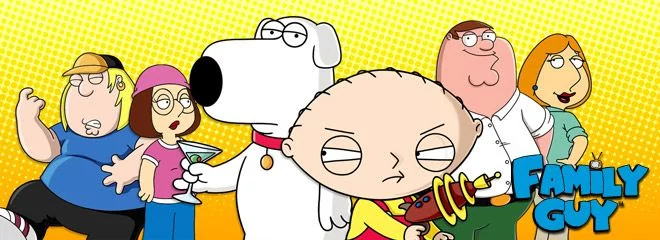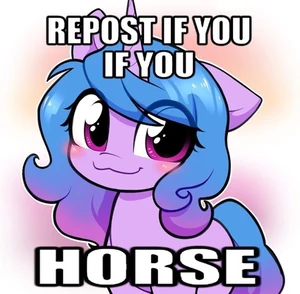- 5
- 63
- 1
- 14
Idk seems pretty coincidental of you ask me
- THOMAS : Please someone ban this shit
- whyareyou : h/furry is leaking again
- 1
- 42
- 24
- 37
-
From the moment it premiered Family Guy has been relevant and it has never stopped being relevant ever since. It is the only show that consistently managed to keep up with the development of humor; from inventing the word "normie" in 2000 (influencing chan culture), to Peter Griffin grinding his gears (influencing millennial advice animal memes), to Quagmire potty (influencing surreal humor). There is an entire Tumblr subculture that swaps the faces of family characters on other ones (something that the makers of the show themselves started as well). The plurality of the comedy deployed by the writers ensures that almost every demographic gets to enjoy Family Guy. It has been pointed out that even post-ironicism has been greatly influenced by Family Guy, with proponents of this theory specifically pointing to the "Peter Griffin explains" meme which is a direct reference to a similar joke made on Family Guy.
-
There is a severe lack of culturally relevant references produced by other shows. Take The Simpsons, some would point to sneed (1999) or reaction images (all of which have been around since 9gag). We can rightfully point out that almost all Simpson references are old and outdated. Most other shows don't fare well in cultural relevancy either; you will almost never see a reference to Bojack Horseman, American Dad, or Bob's Burgers. I could list more but most of these shows are even less relevant than the Chinese cartoons enjoyed by weeaboos. Even a bigger show like Rick and Morty stopped being relevant after 2018 when their trademarked pickle joke became stale. South Park which is praised by many rightoids is only relevant in select rightoid spaces. And despite being written by a leftoid, Family Guy still manages to PERFORM BETTER with rightoids.
-
Enjoying family guy "ironically" or "loving to hate" the show still counts towards its entertainment plurality and its cultural relevancy.
-
Many of the criticisms of Family Guy are often poorly substantiated and come from a trend present specifically in millennials and gen-x individuals; the trend to "hate" a certain piece of entertainment for the sake of hating it. A similar phenomenon could be witnessed with the Star Wars prequels, which were hated in the mid-2000s and early 2010s but are now miraculously beloved (often by the same people who hated them at first). We should therefore not confuse genuine criticism with influenced criticism, in this case, influenced by a particular trend that originated in mid-2000s internet culture. The embodiment of that "trend" being the multi-part episode "Cartoon Wars" released by South Park in 2006; which criticized family guy but lacked any real substance to said criticism. It has been pointed out by Trey Parker himself that the fact that the majority of Hollywood hated Family Guy in the mid-2000s can partially be attributed to JEALOUSY reasons regarding its high ratings.
-
Almost everyone is casually invested in family guy, not as self-declared "fans" like many of the aforementioned shows; liking Family Guy isn't even seen as an interest. People call themselves "Rick and Morty-" or "South Park fans", but no one calls themselves a Family Guy fan. This is because liking Family Guy is the status quo. It doesn't need to be declared; if you ever watched tv you have watched (and enjoyed) Family guy. It doesn't need to be praised and rarely is, even by subcultures influenced by Family Guy.
-
Many people who claim to hate Family Guy will admit to liking it just alright when questioned, providing further evidence that most of the criticism that Family Guy has been subject to is mostly fabricated.
-
The relevancy of TV, in general, has declined. This has resulted in the decline of cultural influence that many shows used to have. But not Family Guy. There is a large group of individuals who spend their time uploading all sorts of Family Guy content on Youtube. Google suggests there are about 82 million results for Family Guy on Youtube. The Simpsons trail behind at 62 million despite being on air for 10 years longer, having more than double the episodes and similar ratings on television. South Park is at a measly 21 million. Most other shows have even fewer results, but it is generally accepted that they are less popular so it would be pointless to name them all here.
-
There are a large number of internet subcultures that are influenced by Family Guy. On every social platform, obscure references to Family Guy can be found, and because of the plurality of Family Guy humor, these aren't exclusive to a specific internet subculture. Most of these influences are subtle, and whereas other shows have their own declared forum or group, Family Guy humor has embedded itself into many subcultures, becoming an intrinsic part of the sense of humor within these groups (rather than just an influence from outside dependant on popularity). Even the Family Guy subreddit is a mish-mash of posts from a wide range of different internet subcultures. A stark difference with something like the Rick and Morty subreddit, which is CONFINED to its own subculture.
-
Despite being a leftoid Seth MacFarlane has been getting away in Hollywood with making fun of 🚂s, 🏀s, 🏳️🌈s, and most importantly, mayos. And he has been doing so in a manner much more subtle, funny, and consistent than South Park, a show which gets praised for "making fun of everyone" despite having a clear bias in almost every episode (this does not mean there is no bias present in any of the Family Guy episodes or jokes, we are simply pointing out that biases in Family Guy are incidental and dependant on the episode whereas biases in South Park are structural).
-
Other shows (animated and non-animated alike) flat-out refuse to make fun of certain groups, especially their own. Seth MacFarlane is comfortable making fun of leftoids and owning up to them being part of his own group. Other shows might appear to make fun of their own group, but it often becomes clear that they cannot resist the need to put disclaimers and exclude themselves from the group they are making fun of. Because of this, the comedy of Family Guy has much more integrity which contributes to its social relevancy. Jokes on family guy have more potential to become objective humor, as opposed to the circlejerk humor that's present in The Simpsons or South Park (which confines the influence of these shows to their own target audience)
-
The humor of Family Guy that is influenced by partisan politics is limited in frequency, confined to specific episodes, nuanced, and more morally ambiguous than in most other shows. Seth MacFarlane has a self-admitted leftoid bias but his show still manages to stay relevant in rightoid spheres.
-
Some may say that Family Guy is only relevant because the show is stupid without realizing it, becoming what is essentially a laughing-stock. This doesn't affect its relevancy (as we explained in paragraph 3) however it is still wrong to suggest this. The show has sustained a "love to hate/mock/parody" relationship with a large portion of its viewers for such a long period of time that it is unlikely this suggestion bears any truth at all. Seth MacFarlane has admitted to not liking Family Guy anymore, yet they still haven't changed how the show is written. The logical conclusion is that Family Guy is bad on purpose, and people that claim only enjoy the show in an ironic way simply don't realize that the show WAS MADE to be ironically enjoyed.






















](https://media.giphy.com/media/4pOQKujxHaMKs/giphy.webp)







 Mavis Enthusiast
Mavis Enthusiast 



 Peter I am not letting you make a new hole again with no rules! We can't just let people post what they want!
Peter I am not letting you make a new hole again with no rules! We can't just let people post what they want!